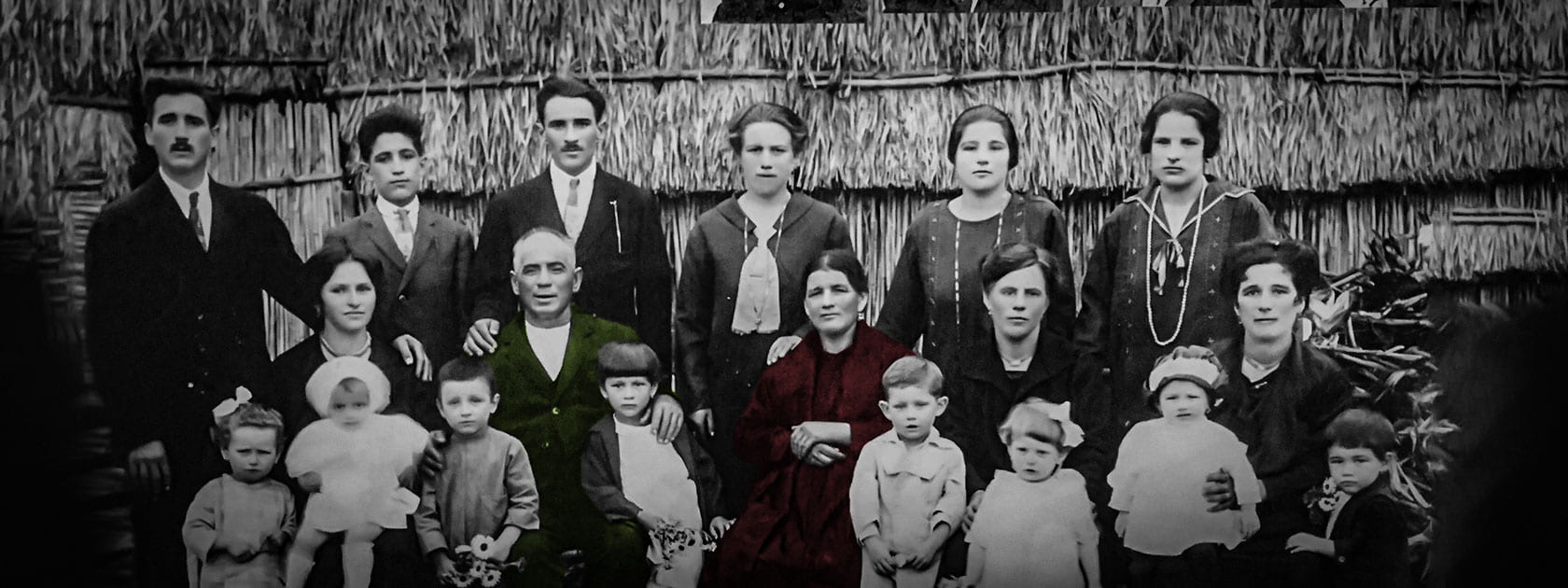Written by Nicole Pacella

The following page discusses an interview with an Italian-Canadian Immigrant, Norina Trabucco, about her immigration to Canada, alone at 20 years old and her finding a home in Canada.
The audio recording of the interview and slide show can be accessed below.
Table of Contents
Introduction
The objective of my interview was to understand why my Nonna, Norina Trabucco, came to Canada. She has never discussed this subject with me, nor has my family ever talked about it. I chose my Nonna to interview because I knew it would be an interesting story. She is not sentimental, nor does she talk about the past, but I knew her story would be one of resilience and strength. What I did know is that she is the strongest woman who didn’t have the easiest life. I wanted to give her a platform to speak on her experience of immigration as a young adult, all alone; and I wanted her to speak about how she made a family in a brand-new country where she didn’t know the language and was doubted by her own mother her whole life. She was the youngest of six children, and she was the only girl. My interview changed from my initial thoughts that my Nonna would not divulge a lot of information as this subject is a sore one for her. She surprised me and talked with me about her whole life story in detail. I was so thankful for this and for her trusting me with the interview.
Interview
My interview took place on October 1st, 2022. I conducted this interview at my Nonna’s house in her kitchen. I wanted to better understand her story and what she went through to create the life my family and I are so grateful to have today. Below you can find the full transcription.
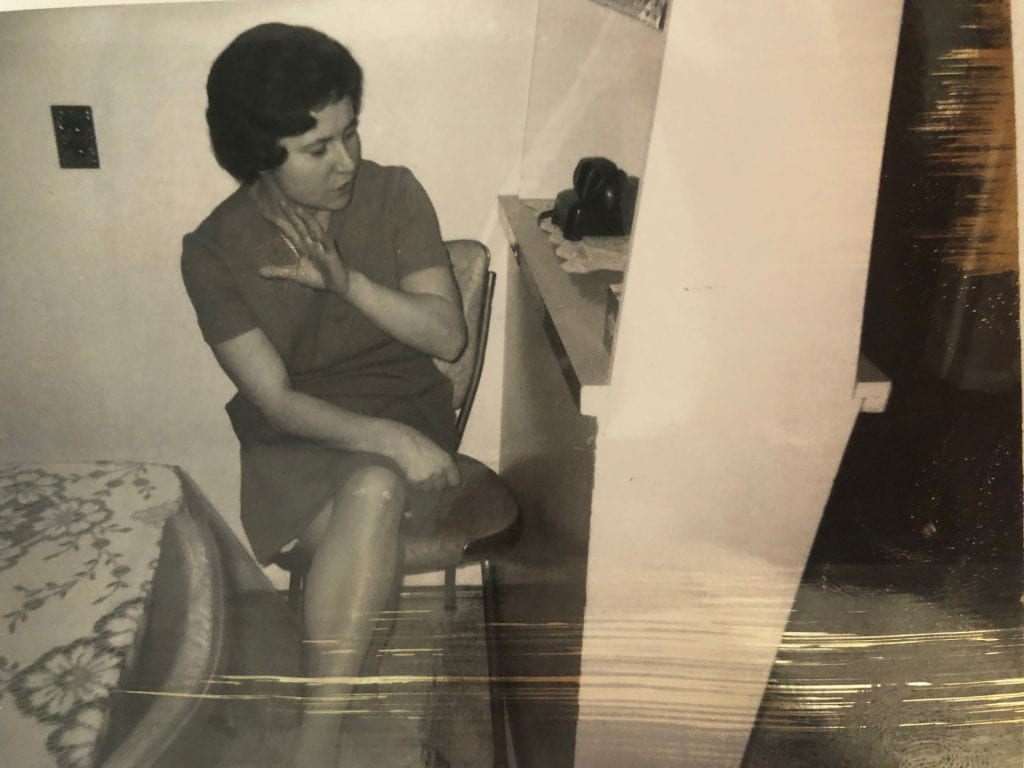
Analysis
The interview I conducted with my Nonna had a clear theme for me: resilience and perseverance. My Nonna was a young woman who was not treated well by her family, especially her mother. She was not allowed to go to school past the third grade and she was made to cook and work the fields since she was 7 years old. Once she became a teenager the poor treatment continued. She eventually left her home to live with my late Nonno’s family. The treatment of girls wasn’t any better there and that is when she decided she needed to leave. She left her home, leaving behind brothers, her mother and father, and her husband, my late Nonno. She had her mind set on forging a new life in a new country where life would be better for her and her future family. This new life would be a life of self-confidence and perseverance for the future generation of women in my family.
When she arrived in Canada, she set aside her fears and built a new life in a safe country full of opportunity. In the interview it is clear the disdain my grandmother had for her mother back home and her upbringing in Italy. Her experiences in Italy does not discourage her from staying with her community of Italians when she does arrive to Canada. Her experiences in Italy also does not make her drop her culture and heritage when she arrived in Canada. She embraced her culture and what she learned in Italy by cooking, weaving, sewing, knitting and keeping her native language within her family. I am happy that she decided to continue family traditions and make new ones. My nonna’s experience of living in Canada differs from discussions in the Italian Heritage class with Professor Russo in that Italian immigrants generally felt nostalgic and sad about leaving Italy as documented by various scholars and recorded in interviews, but my grandmother was the opposite. She was so happy to leave Italy for Canada. During the interview she explains that when she was leaving to board the ship, the taxi driver asked her why she didn’t look back at her home and she responded, “I cannot look back, I have to look forward.” She adopted this saying for the rest of her life and that is why I was eager to interview her because her story is an untold one and needed to be heard.
“I cannot look back, I have to look forward.”
Norina Trabucco
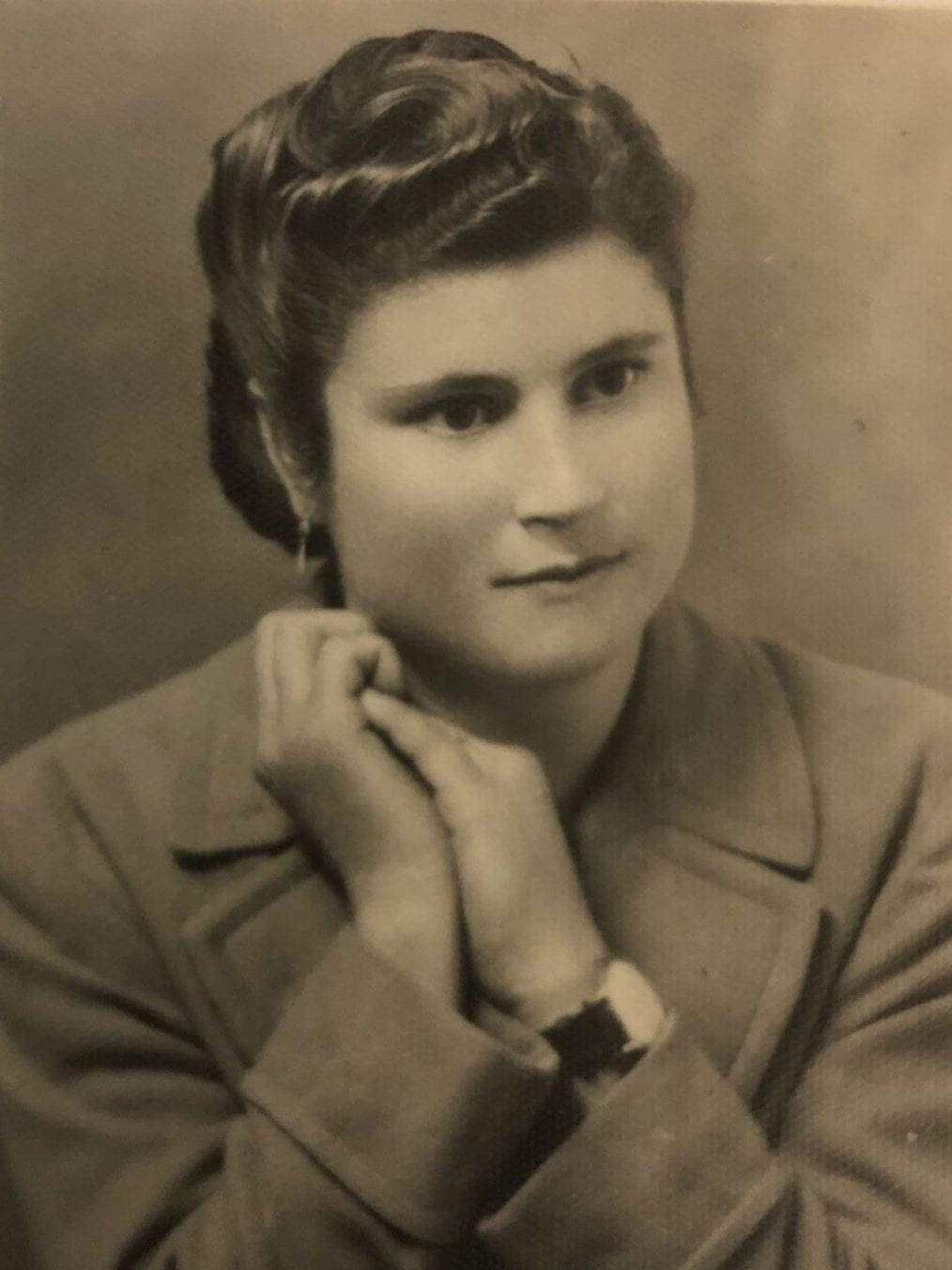
Reflection
This interview reinforced my view about my Nonna as the strongest woman I know. She empowered me as a woman to do what I wanted no matter what anyone says. Your own family can doubt you, but you need to be sure within yourself that you can have and do anything you want if you are brave and put your mind to it. I had personal development through this project. I became more aware of my role in my family and what the women in my family have done before me. It encouraged me to continue the legacy that my Nonna started and to make her proud. I became more appreciative of my family as well. Since the interview I have grown closer to my Nonna. We have had talks that are invaluable to me, and I do not believe we would be having them if it were not for the opportunity this course gave me and for this project.
Gallery

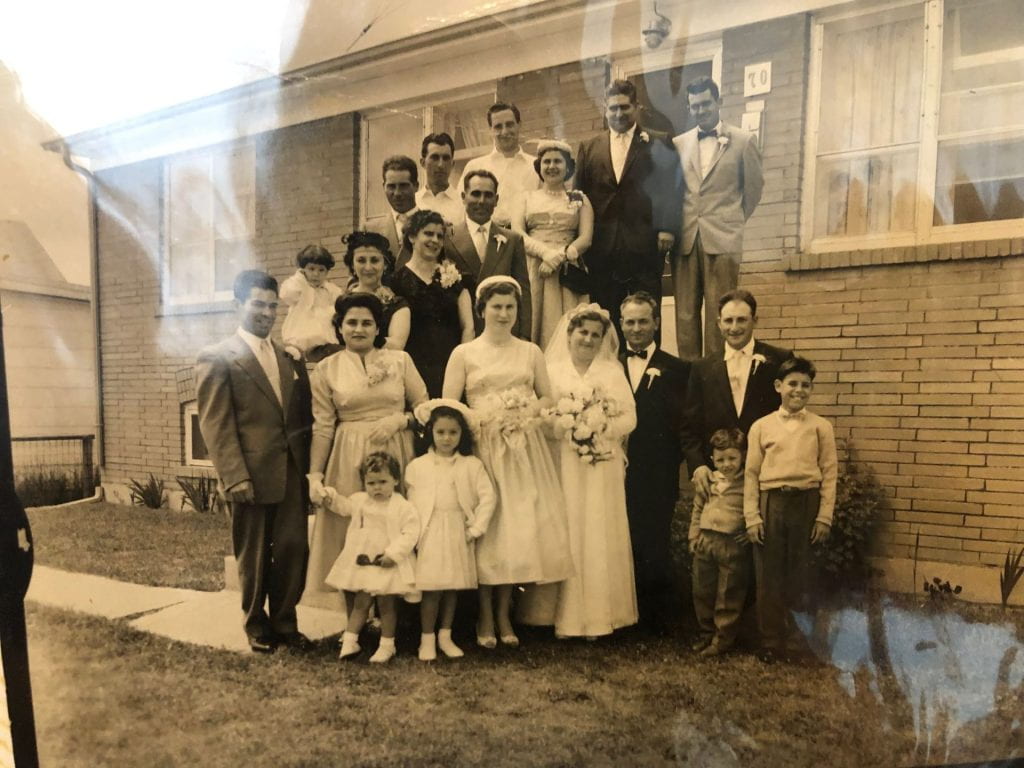
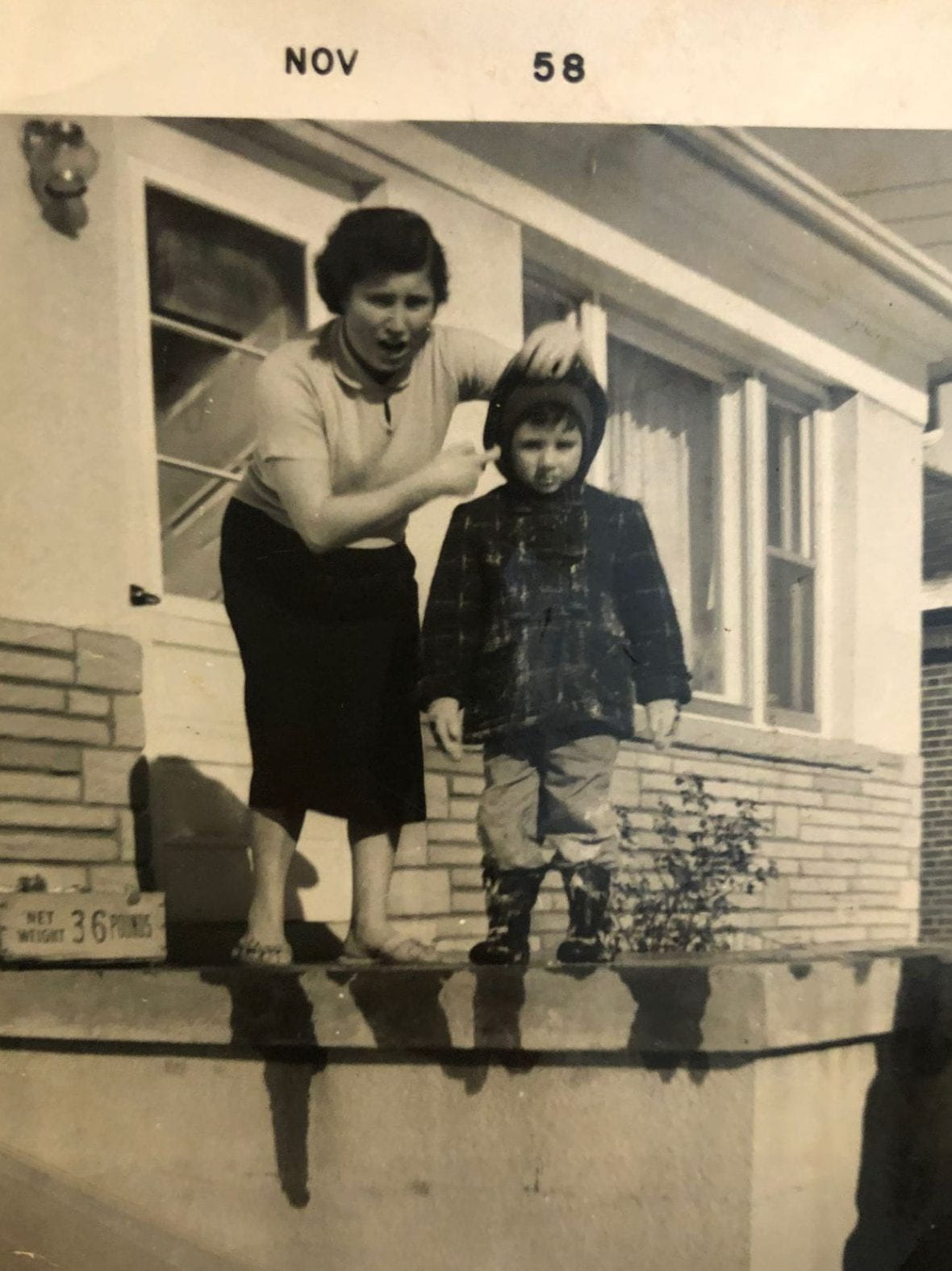

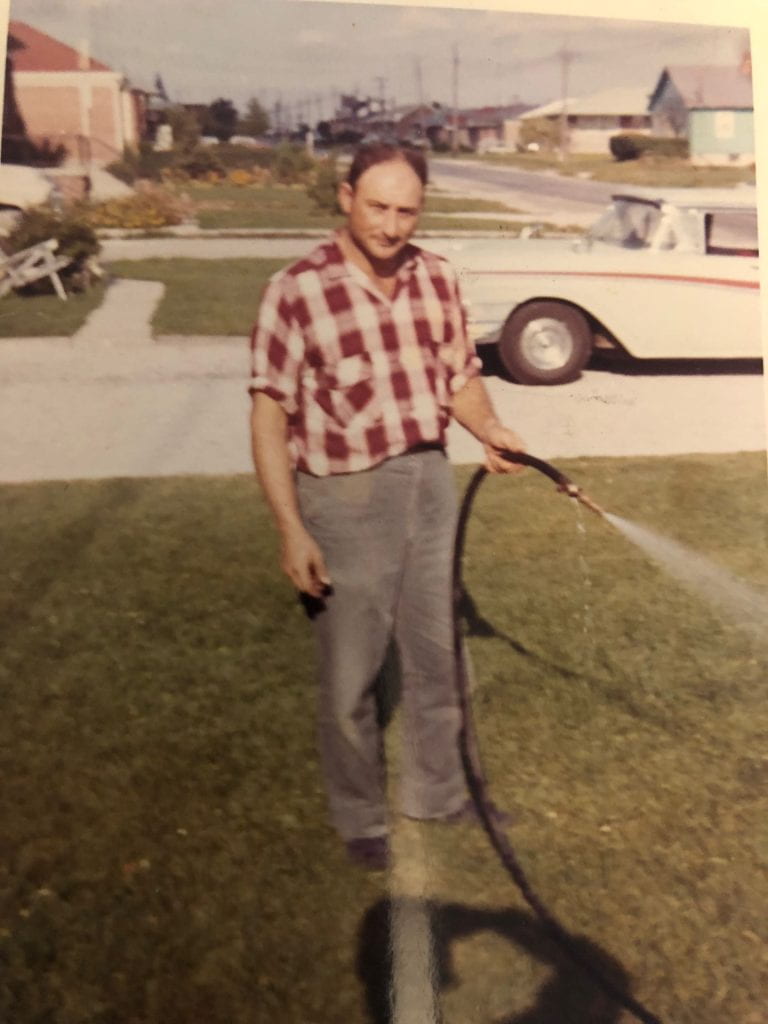

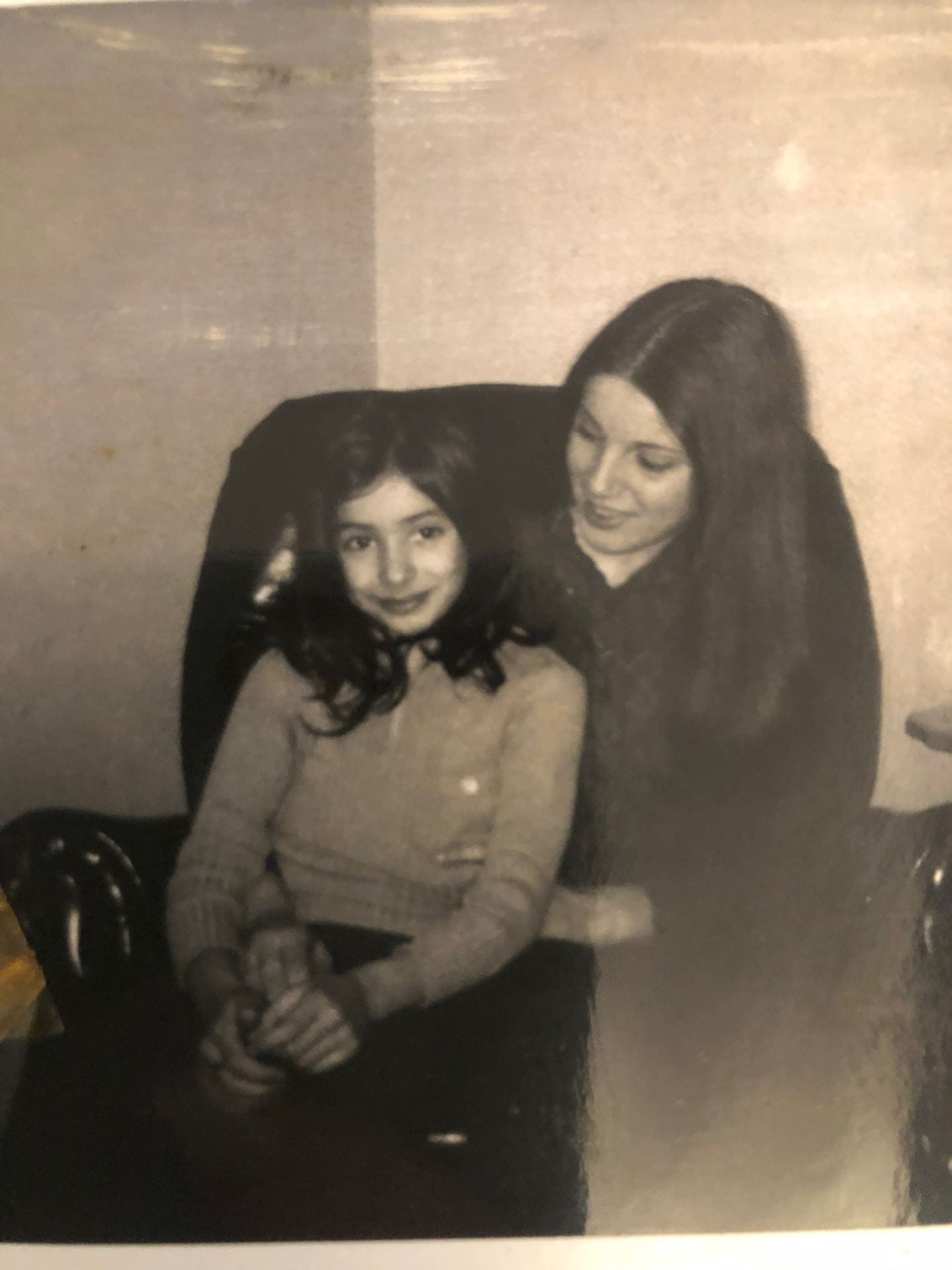
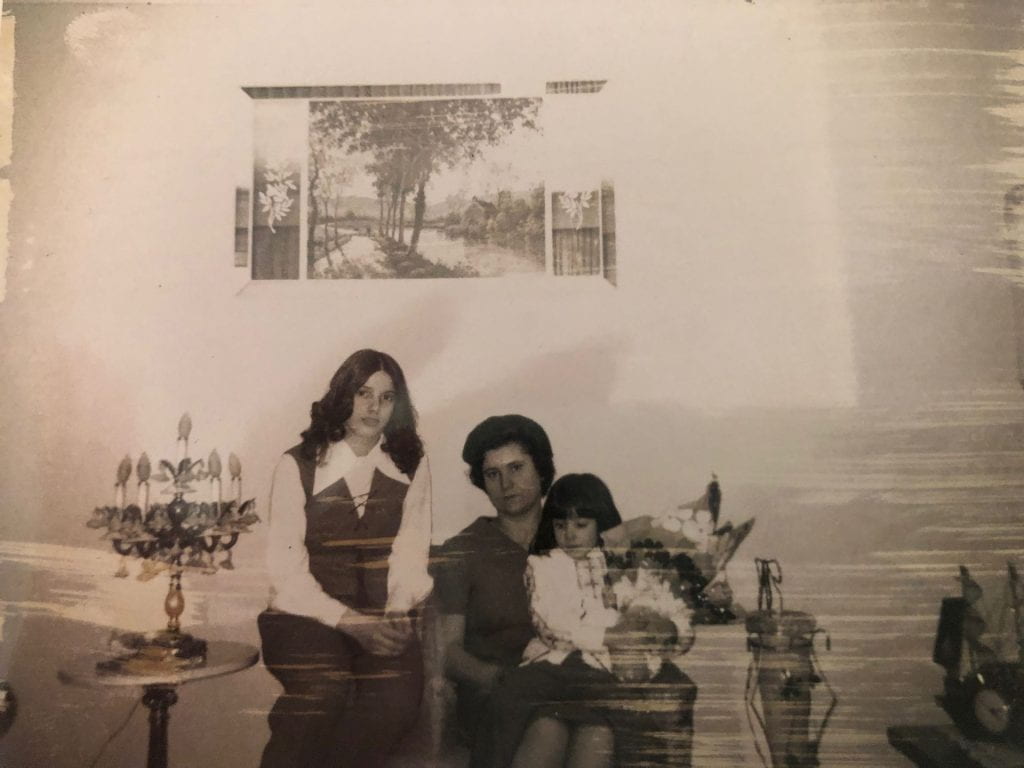
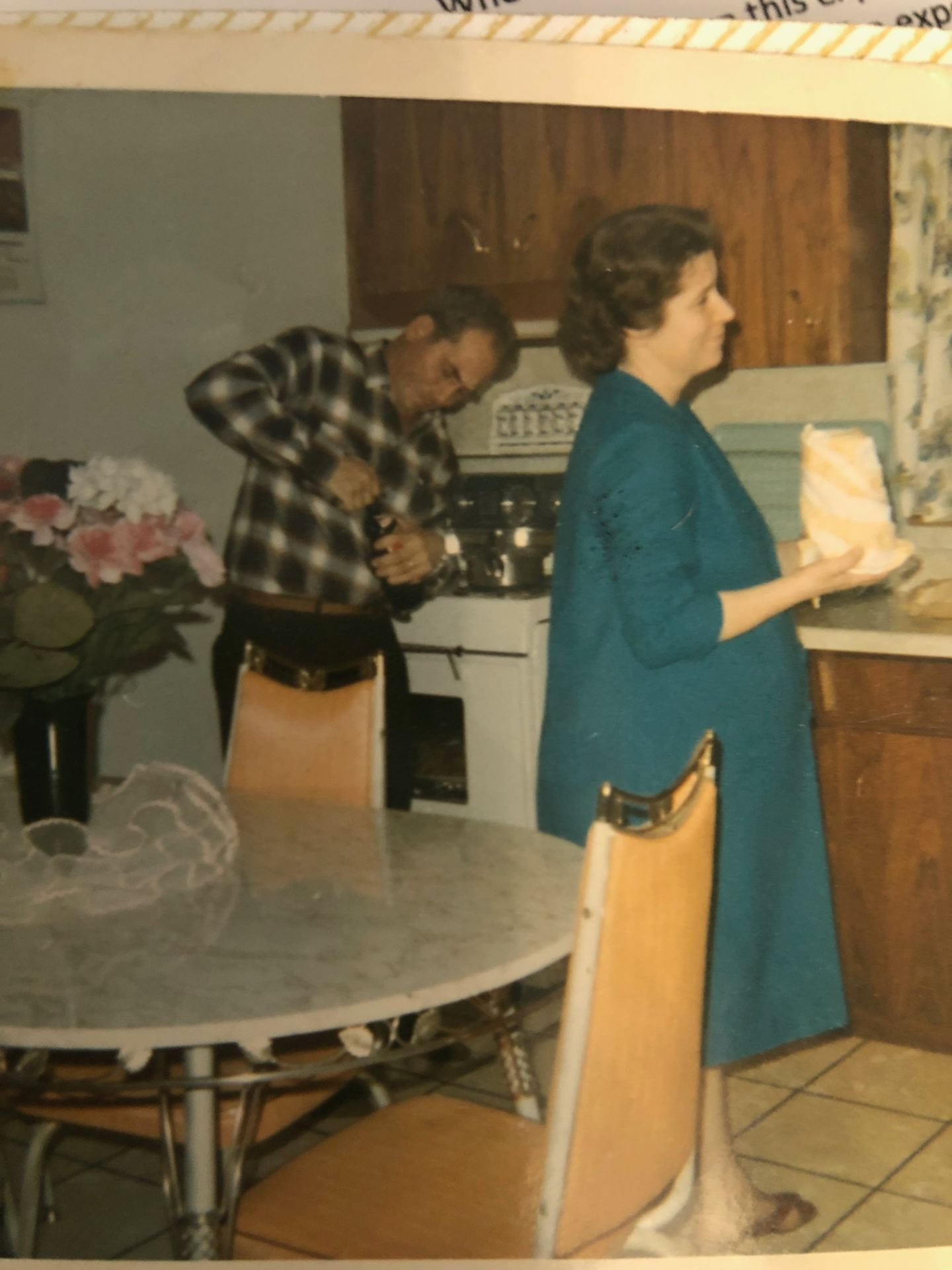
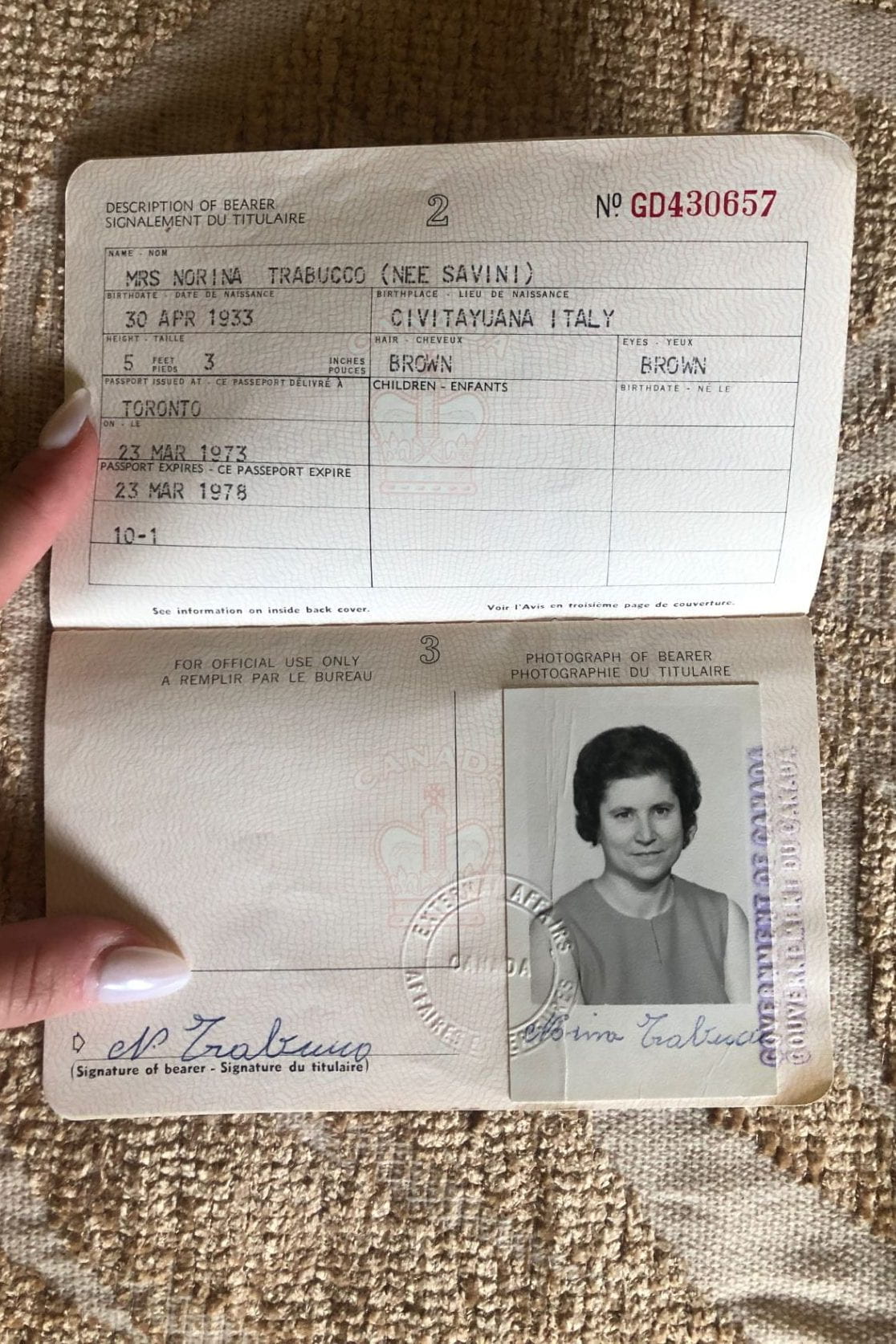

Bibliography
All photographs included have been approved for sharing from the private collection of Norina Trabucco.
Pacella, N. “A New Home: A Story of an Italian Immigrant Woman.” Youtube. 1 October 2022. https://youtu.be/kNQyyhKakrs; access at Italian Communities in Canada: Heritage, Cultural and Ethnographic Studies as of November 2022, www.italianheritage.ca.
How to cite this page
Pacella, Nicole. “A New Home: The Inspiring Story of Norina Trabucco.” In Italian Communities in Canada: Heritage, Cultural and Ethnographic Studies, suprv. Teresa Russo. University of Guelph, 28 November 2022, Guelph (https://www.italianheritage.ca/2022/12/02/a-new-home-the-inspiring-story-of-norina-trabucco/) Italian-Canadian Narratives Showcase (ICNS), Sandra Parmegiani, Kyra Bates, and Gurpreet Kaur.


